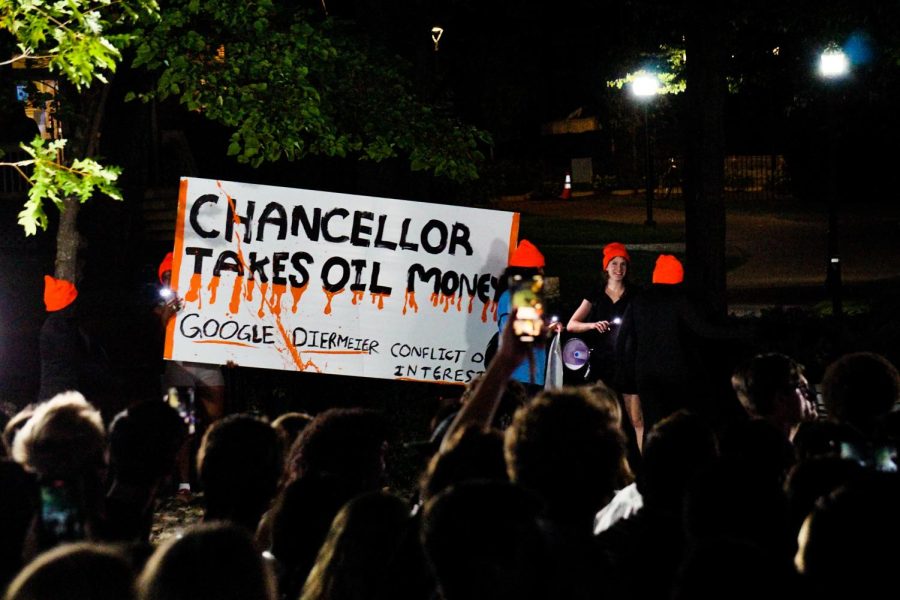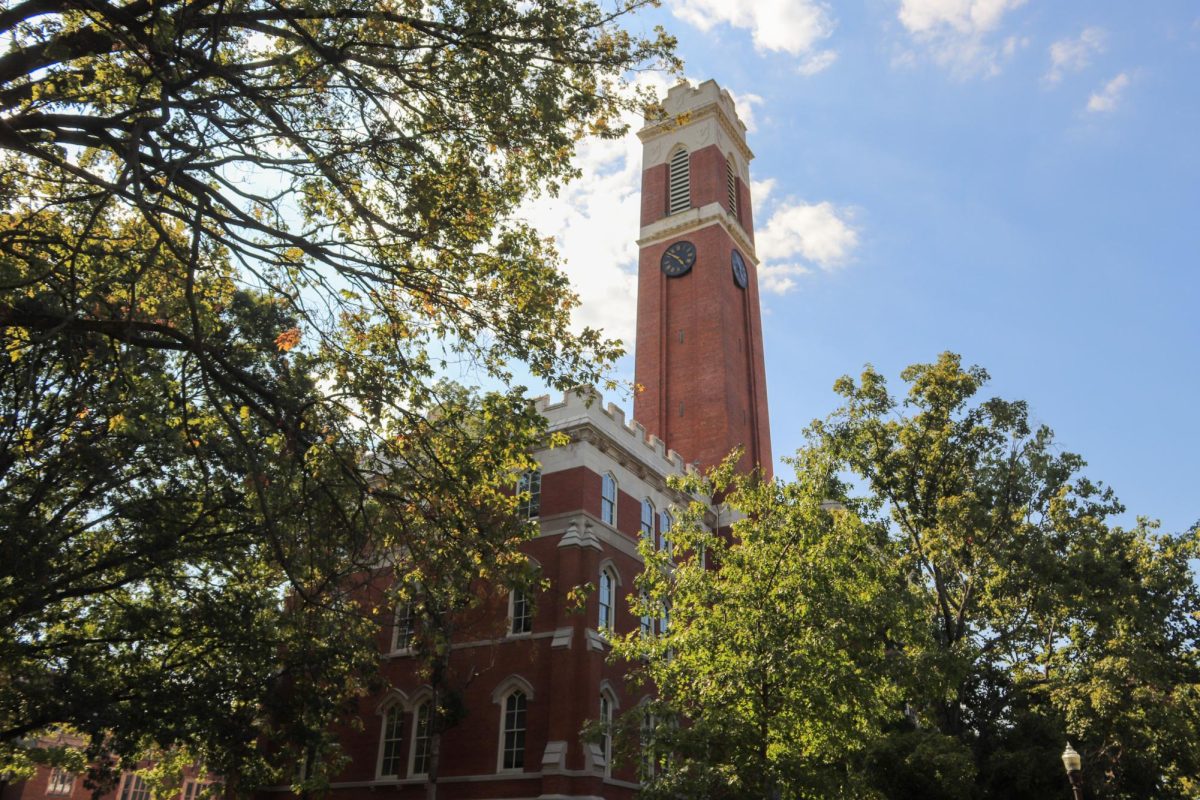In the 1980s and 1990s, tough-on-crime law enforcement caused the prison population to explode. Seizing the opportunity to bank in on imprisonment, the private prison industry emerged to house the incarcerated and make money doing it. And since the dawn of the industry, Vanderbilt University has been involved in its rise.
The roots run deep. The leading private prison enterprise, Corrections Corporation of America, was founded by Vandy Law alum Thomas W. Beasley (‘73). Vanderbilt did not distance itself from Mr. Beasley; in fact, the university became one of the primary shareholders in the CCA before the company became the first private prison company to go public in 1997. Additionally, Vanderbilt conducted a study, which was partially funded by the CCA, that sought to demonstrate the cost-reduction benefits of private prisons as opposed to government-run prisons. The CCA thought that the study was so good for their own PR that they put a summary of it on their website.
Last year, acting on this information, the VSG Senate unanimously passed a bill recommending that the administration disallow investment in private prison corporations such as the CCA. Unfortunately, the University has yet adopt this policy.
“The university ignoring our legislation is wrong and ungrounded. The voice of the student body was made clear by our unanimous vote,” said Hamzah Raza, the VSG Senator who authored the legislation.
The ties still remain. And that’s a problem: the private prison industry stands in direct contrast with Vanderbilt’s stated mission to support equality and compassion.
With reference to equality, the private prison industry’s efforts to lobby Congress have all been centered around initiatives that have been shown to disproportionately harm minorities. Business-run penitentiaries have an incentive to put bodies in their beds, because the government pays them for their service per head. As such, interest groups representing the private prison industry have pushed for tough-on-crime legislation, such as ‘three-strike-laws,’ which put offenders in jail for extended sentences after three felony convictions. Studies have shown that these laws are disproportionately applied to black defendants. The effect of this kind of legislation is apparent when one looks at who’s getting locked up: in private prisons, a disproportionate number of cells are filled by minorities—even more so than in government-operated prisons. Private prisons represent an inflated arm of a racially unequal institution.
Along with applying the law unequally, these prisons also treat their prisoners without compassion. Privately-run prisons experience much more violence than government-run prisons. Inmates are often put in solitary confinement not as punishment, but because those cells are the only ones available. In order to turn a profit, private prisons keep spending low on healthcare, resulting in a decreased quality of care. In a grisly incident, a prisoner complained of trouble breathing and was told to wait for care instead of being treated immediately. No staff kept tabs on him, and he subsequently died. In fact, the healthcare options are so bad that they often prompt riots.
This is not to say that Vanderbilt hasn’t made steps in the right direction. Some students and alumni are actively fighting against private prisons and mass incarceration. For instance, Michelle Alexander, a Vandy alum, penned the instant-classic The New Jim Crow, an academic analysis describing how private prisons, the War on Drugs, and racialized politics have imprisoned people of color at astronomical rates. On April 3, the Vanderbilt Prison Project hosted the ‘Hidden Voices’ event, a series of short plays put on by men currently incarcerated in a nearby penitentiary.
“Hidden Voices gives a face to a population that is so often reduced down to a statistic,” said Becky Howe, President of the VPP. “It allows for the greater community to understand that incarcerated individuals are humans just like everyone else and encounter problems in their lives just like we do.”
The administration has something to learn from its students and alumni: the private prison industry is toxic and needs to be fought against, not implicitly bolstered. It must disentangle itself from the industry. It must denounce Mr. Beasley and rescind the Distinguished Alumnus Award that it gave him; it must renounce the study that made the CCA look respectable; it must pledge not to invest in private prison stocks, which have rebounded since Trump’s election. If it does not, it will send an unequivocal message that its support for compassion and equality is not universal.









Mary Elsa Theobald • Dec 27, 2019 at 8:13 am CST
Excellent article. I am horrified to find that Vanderbilt is an owner and is making money from private prisons. This includes the suffering and inadequate living conditions at Eloy Detention Center in Arizona. It is a CoreCivic prison housing separated families at the border in Arizona and considered the worst detention center in the country. You hit the nail on the head when you pointed out that the mission of private prisons, and detention centers, is in total contrast to the mission of Vanderbilt. I loved my experience at Vanderbilt; however, knowing that it came, in part, on the backs of human suffering and prisons for profit is disturbing. Keep up the good reporting.
joe costello • Apr 9, 2018 at 1:49 pm CDT
Hi Schulman
Vandy18 • Apr 7, 2018 at 12:31 pm CDT
@Vandy19 did you wake up and think, “yeah people will take me seriously if I make an ad hominem argument”?
smither55 • Apr 6, 2018 at 1:12 pm CDT
From university riots in the ’60s over department of defense funding to the current corporate-academic ties of today, it’s in the hands of the student body to effect change in the institutions they are a part of. Great article.
Vandy19 • Apr 5, 2018 at 12:51 pm CDT
Did you wake up and think, “yeah people will take me seriously if my photo is of me in a basketball jersey.”
Dasan • Apr 6, 2018 at 9:04 am CDT
Did you wake up and think “What pointless comment can I make on an article about an important problem?”